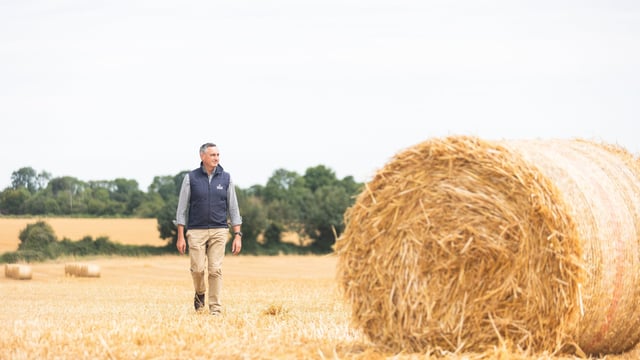New EU agriculture and food board meets for first time
The European Board of Agriculture and Food (EBAF) had its inaugural meeting in Brussels yesterday, Tuesday, February 4. The group was set up by the EU in December 2024.
The initiative, led by the European Commission, aims to to foster cooperation between stakeholders in the food supply chain and civil society to shape the future of European agriculture and food policy.
European Commissioner for Agriculture and Food, Christophe Hansen, chaired the meeting.
EBAF's members are part of organisations representing the farming community, other actors of the food supply chain, and civil society from areas such as environment and climate, animal welfare or consumer issues.
The European Federation of Agriculture and Tourism Trade Unions (EFFAT) has welcomed the creation of EBAF.
The group has reiterated its commitment to ensuring that workers' voices are heard, and their rights are protected.
EFFAT said it is the only recognised European social partner representing workers across the food chain.
CEJA
The European Council of Young Farmers (CEJA) has also been appointed to the board. The organisation will be represented by it's president, Peter Meedendorp.
The organisation has welcomed the board's decision to grant them a place on the board. It has committed to uphold the values of dialogue and cooperation they displayed in the strategic dialogue on the future of agriculture.
CEJA represents the political interests of around two million young farmers from across Europe.
CEJA president, Peter Meedendorp said: "We are committing to the board with the ultimate ambition to make the voice of new generations in agriculture better heard by policymakers and stakeholders alike.”
EU
EFFAT has said the European agri-food sector faces numerous challenges. It believes that many workers endure low wages, precarious employment, and high levels of undeclared work, undermining both sustainability and social equality.
The group believes these factors deepen economic disparities, distort competition, and weaken the bargaining power of workers and small farmers.
EFFAT general secretary, Enrico Somaglia said: "EFFAT's vision underlines one consistent point - the social dimension of the agri-food sector must be at the heart of this high-level body. There can be no sustainability without decent work.
"The EU must take a holistic approach and tackle the long-standing systemic issues that contribute to environmental degradation and vulnerability of agri-food workers throughout the chain," he added.
EFFAT believe its vision for the future of European policy calls for stronger protection for workers, and essential policy reforms.
The group wants to see improvements to the Common Agricultural Policy (CAP) that balance sustainability with social justice and ambitious reforms to address imbalances across the food chain.
EFFAT has been appointed to the EBAF for a five-year term.





